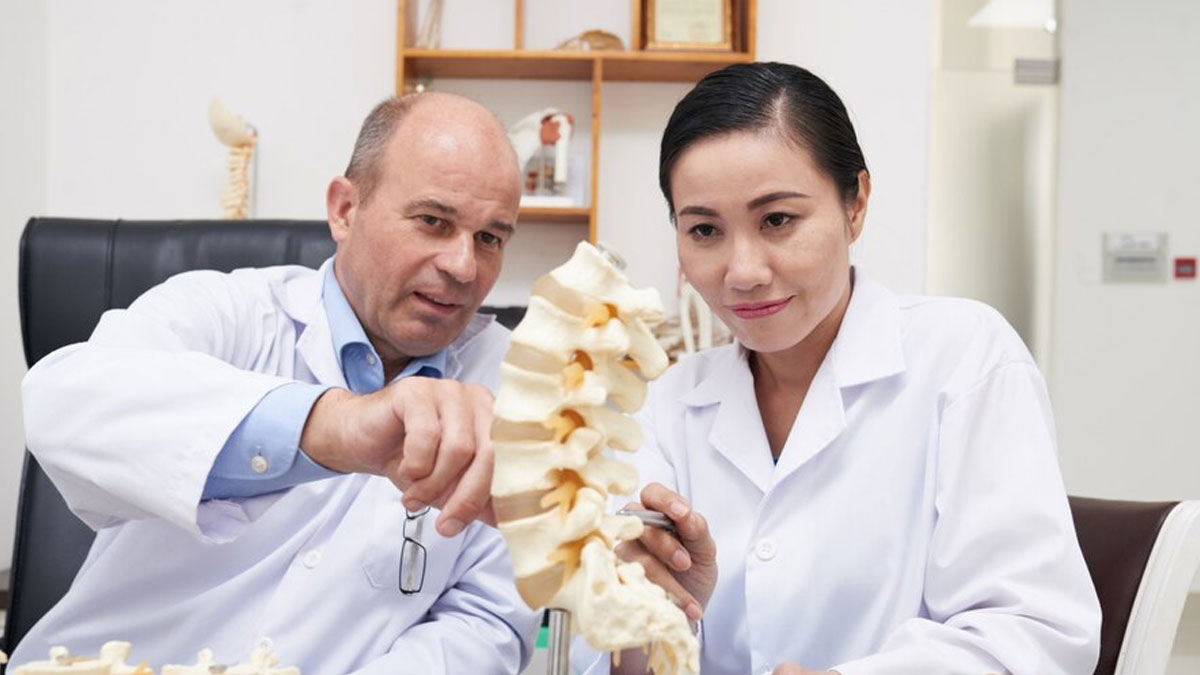
When it comes to maintaining our health, bone density is often overlooked, despite its crucial role in preventing fractures and ensuring overall bone health. As we age, especially after the age of 30, our bones gradually lose their strength, making us more susceptible to conditions like osteoporosis. We spoke to our expert Dr Jayakrishnan Pillai, MBBS, DNB- Orthopaedics (Surgery), Joint Replacement Surgeon, Apollo Spectra Hospital, Bengaluru, who explained why bone density tests are essential in identifying potential issues before they lead to serious complications.
Table of Content:-
What Is Bone Density?

Bone density, also known as bone mineral density, is the quantity of minerals (calcium and phosphorus) found in bones. A 2020 study reveals that approximately 99% of the body's calcium, 85% of its phosphorus, and 40–60% of its magnesium and sodium are stored in the bones.
Bone density is used as an indicator of bone strength and health. High bone density generally means bones are stronger and less likely to break. On the other hand, low bone density could indicate osteoporosis.
Also Read: Bone Health In Children: Impact Of Malnutrition And Vitamin D Deficiency
Importance Of Bone Density Tests

“Bone density tests are conducted to determine the condition of osteoporosis, where bones become brittle and result in fracture or breakage. Women above the age of 50 are more likely to be affected by osteoporosis. Fully bone mass is developed around the age of 25-30. As people start ageing, regardless of gender, bone mass begins to decline”, explained Dr Pillai.
A primary cause of bone fragility and fractures is a deficiency in essential nutrients like calcium and vitamin D. As a result, individuals with osteoporosis are susceptible to fractures in the hip, spine, and wrist, even from minor impacts like sneezing or coughing.
“Menopause brings hormonal changes, including a decline in bone-protecting oestrogen. Lifestyle factors like inactivity (skipping activities like walking, swimming, or cycling), excessive alcohol, and smoking further weaken bones. Certain medical conditions, such as rheumatoid arthritis, kidney disease, eating disorders (anorexia, bulimia), and family history also increase osteoporosis risk”, added Dr Pillai.
Symptoms of Osteoporosis

“For loss of bone density, symptoms are unnoticeable until there is a major fracture or breakage of the bone. But a few symptoms, such as fracture for coughing and sneezing, usually around the hip, spine, or wrist may highlight reduced bone density or osteoporosis conditions,” said Dr Pillai.
Severe back pain may lead to a fracture of the spinal and results in decreased height as well as hunched posture. Breakage of bone for minor injury as brittleness of bones could affect daily activities and reduce mobility.
Also Read: Osteoporosis During Pregnancy: Expert Lists Ways To Promote Bone Health
Treatment and Diagnosis For Reduction In Bone Density

Doctors may recommend Vitamin D tests, calcium tests and blood tests to determine the health condition.
A DEXA or DXA scan measures bone mineral density by assessing calcium and other mineral content. This painless, quick X-ray exam exposes the forearm, spine, or hip to low radiation for 10-30 minutes. It helps determine bone fragility and osteoporosis risk.
"Treatment for broken bones varies between men and women. Bisphosphonates are commonly prescribed, with specific treatment depending on the severity of the condition. For patients at high risk of fractures, injectable medications, such as Parathyroid Hormone (PTH) analogues, denosumab, and romosozumab may be recommended," said Dr Pillai.
Changes in lifestyle, consuming foods rich in calcium, vitamin D, and phosphorus like beans, lentils, almonds, yoghurt and leafy greens, chia seeds, and sesame seeds will enhance bone density.
Bottomline
Dr Pillai concluded, “A healthy diet and lifestyle changes can help in maintaining good bone density. Early detection and proper treatment can manage and reduce the risk of fractures and significantly improve bone density. A person must approach a doctor hassle-free regarding the issue and develop a personalised treatment plan for a healthy life.”
[Disclaimer: This article contains information provided by an expert and is for informational purposes only. Hence, we advise you to consult your own professional if you are dealing with any health issues to avoid complications.]
Also watch this video
How we keep this article up to date:
We work with experts and keep a close eye on the latest in health and wellness. Whenever there is a new research or helpful information, we update our articles with accurate and useful advice.
Current Version